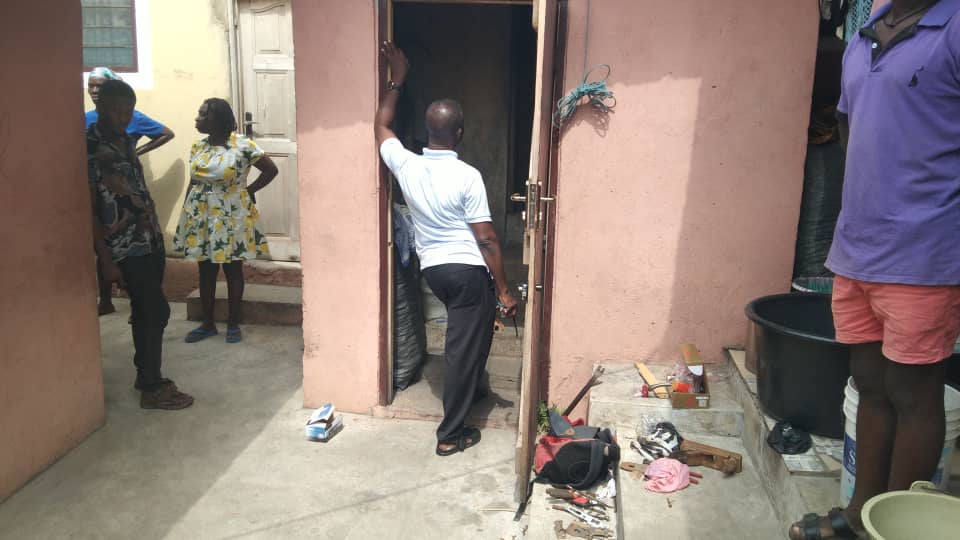
The New Juaben Municipal Health Directorate, in collaboration with the Regional Health Directorate, has launched the introduction of the Inactive Polio Vaccine (IPV) into routine immunization.
The occasion brought together stakeholders, departmental heads, medical superintendents, the media, nursing mothers, nurses and the general public.
The introduction of the vaccine to children under five (5) years, specifically children from fourteen (14) weeks of age after birth to one and half (1 ½) years, is to curtail and prevent the polio virus from the region and from Ghana. It is also expected to help in achieving the Sustainable Developments Goal of ending preventable the death of newborns and children under five (5) years of age with all countries aiming to reduce neonatal mortality to at least as low as 12 per 1000 live births and under 5 years mortality to, at least, as low as 25 per 1000 live births by 2030.
Immunization began on Friday, June 1, 2018.
Mr Musa Yaya Froko, Municipal Co-ordinating Director, in an address appealed to the public, especially nursing mothers, to allow the immunization of their children from 14 weeks old alongside with pneumonia vaccines which are to be administered by trained health workers.
This, he said, was to achieve a lasting polio-free country, adding that sixteen other countries had started the vaccination to children at all health facilities for extra protection against polio.
Delivering the welcome address, the Municipal Health Director, Dr Edmund Ekow Kaitoo, said children were vulnerable to numerous preventable childhood diseases which affected their growth and development to become the future productive workforce and leaders.
He said poliomyelitis was one of the childhood diseases that caused paralysis and deformity of the limbs of children.
He mentioned poor sanitation and non-vaccination as risk factors, adding, however, that proven cost-effective interventions such as child immunization, were available to prevent most of the diseases and other health conditions that affected children and retarded their normal growth and development.
He said the Global Polio Eradication Initiative (GPEI), which was launched in 1988, contributed to the reduction of wild polio virus by over 90% and that, he said, was achieved through a strong routine immunization program and supplementary immunization activities such as the National Immunization Days (NIDs), Sub-National Immunization Days (SNIDs), Accurate Flaccid Paralysis Surveillance and Mopping-up Immunization activities.
Dr Edmund Ekow Kaitoo commended government and Community Health Nurses for their immense contribution towards polio eradication.
For his part, Mr Richard Essien, Co-ordinator, Regional Expanded Programme on Immunization (EPI), said in 1997, measles was the highest child sickness but was no more because of immunization, adding that when mothers took their children for weighing, it afforded them the opportunity to be vaccinated against the thirteen diseases which infants were vulnerable to and advised that all mothers should be encouraged to take their children to health facility for weighing.
In Ghana, in 1998, 23 children were affected and in 2003, 8 local cases were recorded. Mr Essien mentioned Pakistan, Afghanistan and Nigeria as the three countries in the world where the polio disease was endemic.
He said if mothers, after administering of the vaccine detected any side effect on their children, they should send the them back to the health facility for a re-examination.
On his part, Dr Albert Antobre-Boateng, Acting Regional Director for Health, said the launch of the introduction of IPV was one of the critical activities to end polio and a day that marked one of the hallmarks against polio eradication.
He said the progress made to end the disease had not been an easy one and that the World Health Organization (WHO) celebrated this progress on October 24, every year, as World Polio Day--an initiative aimed at a polio-free world.
Dr Antobre-Boateng noted that Oral Polio Vaccine (OPV) had been used by many countries to help fight the disease but that the new Vaccine IPV, which is being used by the western world, was more expensive, safer and more protective.
In Ghana, he said, OPV had helped in the reduction of polio. He disclosed that in 2017, the Eastern Region recorded one hundred and twenty-two thousand, one hundred and fourteen (122,114) immunizations, totallingl 98% while in March 2018, thirty thousand four hundred and ninety-eight (30,498) totalling 23.9% as against the target of 28% which, he said, was enough progress.
He said IPV would be present in all health facilities, CHPs centres, hospitals and clinics in the region and would be used during outreach services, adding that health workers had been trained to administer the vaccine.
Source: ISD (Sethlina A. Okai)
Read Full Story





Facebook
Twitter
Pinterest
Instagram
Google+
YouTube
LinkedIn
RSS